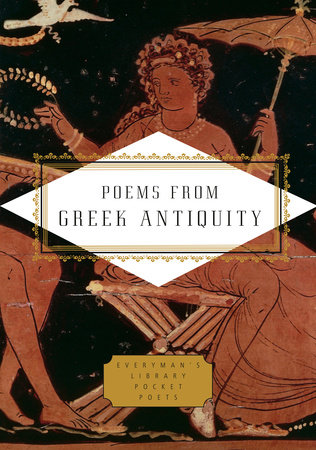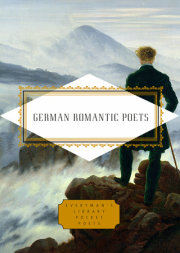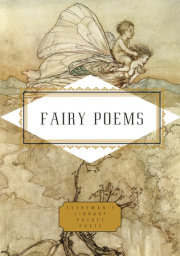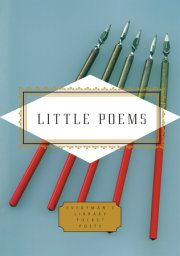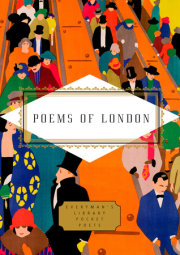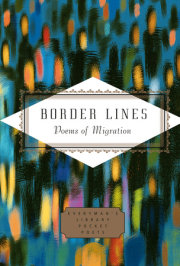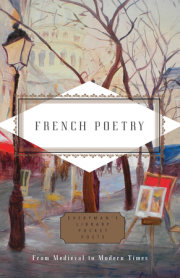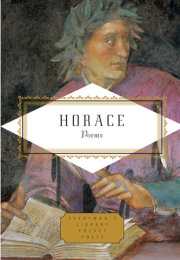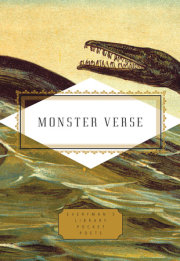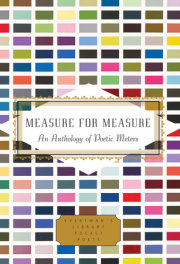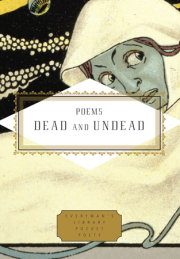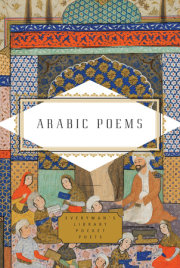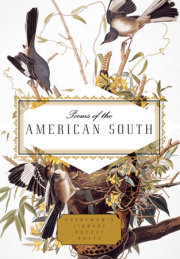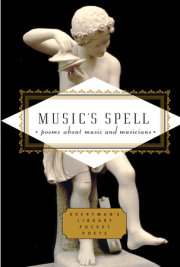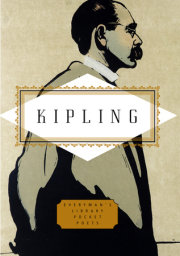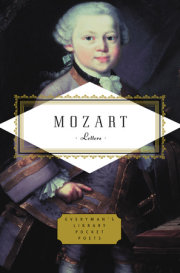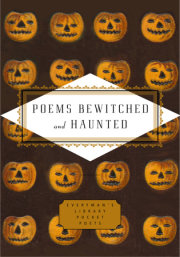PREFACE
The intention of this book is to offer a selection, in English translations from many periods, of a wide range of ancient Greek poets from around 500 BC to the sixth century CE. It draws upon the anonymous Homeric Hymns, the early lyric and elegiac poets, the Alexandrian poets, the poets of the Greek Anthology, and poems from the
Anacreontea which for centuries have been well known and popular both in the original Greek and in English. It contains amongst the translators some famous names, from George Chapman in the seventeenth century to Robert Fagles in the twentieth, but also many which are not well known, and of all brief biographies are appended. Some details of the poets and poems and of how their texts were known, circulated in print and made available to the translators are also given.
Greek literature abounds in masterpieces, two of them epics of great length, but it is rich also in poems of much smaller compass than the
Iliad or
Odyssey, although it is these two poems from which Greek literature takes its origins and inspiration. In terms of stories told and of folk memory the great epics, by whomsoever written and whenever they received their form, are paramount. (There is also, of course, the drama, but that does not form part of this anthology.) Like the epics, plays and prose works, the shorter works have not lacked for translators into English; indeed, the abundance of versions from which to choose is testimony to their popularity. English versions of poems of moderate length by Pindar and Bacchylides; Theocritus, Bion and Moschus, the so-called Bucolic poets; Alceus and Sappho - to name but a few - are included in this volume, as well as many short epigrams. Translations of rather longer poems by a variety of hands are for reasons of space printed in substantial excerpts. Shelley's
Homeric Hymn to Mercury is amongst these, as is the hugely entertaining Homeric pastiche
Battle of the Frogs and Mice, or
Batrachomyomachia in a version by an eighteenth-century Irish poet. The English translations are for the most part in iambic verse couplets.
The Elizabethan and Jacobean periods belonged to a great age of translation, of which the King James Bible forms, as it were, the coping stone, but no age has lacked skill in the discipline of translating prose and poetry. George Chapman's translation of Homer (1616) was famously celebrated by Keats in a sonnet published some two centuries later and has attained quasi-canonical status, as did for a time,
pace Richard Bentley, that of Alexander Pope.* In modern times versions by Peter Green and Robert Fagles are similarly respected and widely read. The
Iliad and
Odyssey, those two great works of the human mind and spirit, although composed in the distant past, are refashioned in the vernacular for each age. Yet they are somehow timeless and, as they deal with human emotions of grief, joy, love, anger, hatred, and family pride, they are intelligible with little exegesis, even if they have at all times attracted a great deal of it. The same is not true of many other ancient writers where a detailed knowledge of how their work, and indeed the very words used, fit into their cultural framework or background is hugely important. This little book is not intended to provide commentary, but sometimes a few words of explanation will be found necessary.
The Greek poets included in this volume span a vast period - over a thousand years - and they do not all write the same sort of Greek. Greek is a very old and rich language which has retained not only its alphabet (nowadays with some consonants sounded differently) but also much of its vocabulary and form, albeit much reduced in complexity. In ancient times Greek had dialects which also are found in literary form. Homeric Greek is a synthesis of all sorts of elements, some from Mycenaean times; Sappho and Alcaeus wrote in Aeolic Greek, the Attic dramatists wrote in Attic Greek although with imported forms for their lyric verses. Theocritus and others wrote in a literary Doric. But one thing is true, ancient Greek is a dead language and one in which, whatever splendid philological work may be done, whatever papyri may be discovered, there is basically nothing new.
[FOOTNOTE]
* Bentley, the great classical scholar, is credited with replying to Pope who had asked him if he had received his copy: ‘It is a pretty poem, Mr. Pope, but you must not call it Homer.' (
The Works of Samuel Johnson, IV [1787],126n.) There is also a possibly more accurate version given twice in the
Gentleman’s Magazine (Oct. 1773 and June 1781): ’the lines are good lines, the translation is a good translation, but you must not call it Homer, it is a good translation of Spondanus’. Jean de Sponde published a Homer with Latin translation, used also by Chapman, in 1583.
English, on the other hand, is a modern language and one constantly changing. The translators represented here originate from the last 450 years, that is, from the time of Shakespeare, the period during which the study of Ancient Greek spread in England as it had already in Europe generally, and formed (with Latin) the basis of the educational system. Even as recently as the 1950s, when the present writer was at school, the study of Greek was common and indeed for a year or two was compulsory in some schools, although it had long ceased to be so for entry to Oxford and Cambridge or other universities.
This educational system, and the books, were taken to America and were just as fundamental in what was taught in schools and colleges in New England; Roxbury Latin School was founded in 1645 by John Eliot, the translator of the Bible into Algonquin; it was in Boston in 1702 that a Latin phrase book, dating back to the first half of the sixteenth century, Leonhard Kulmann’s
Sententiae pueriles, was published, the first American edition of a Latin textbook; James Logan, whose books form the nucleus of the Free Library in Philadelphia, had many editions of Greek and Latin authors, and also translated for the benefit of his daughters
Cato’s Moral Distichs, printed by Benjamin Franklin in 1735. The first Greek book printed in America was an edition of some of Lucian’s dialogues (Philadelphia, 1789), again a schoolbook in circulation in various forms since the early sixteenth century. Such things have a long life.
Translators of Greek poetry have had various levels of attainment in the language. Chapman’s, Pope’s, Shelley’s knowledge was not that of, say, Gilbert Murray, Regius Professor of Greek at Oxford (1908-36) who was, unlike many such – ‘Bald heads forgetful of their sins’ (Yeats) - a considerable verse translator. None the less, the urge to render Greek poetry into English is of its time
and recurrent.
The Authorized Version has established itself in the soul of English-speaking men and women, whether believers or non-believers, and become not just part of the literature but even of the language, but no one translation of any Greek classic has held out against all comers in the way that Florio’s Montaigne or Harrington’s Ariosto has, to name but two of Chapman’s contemporaries. It must, however, be admitted that in the twentieth century the prose translations of E. V. Rieu (1887-1972), published by Penguin Books, with the
Odyssey appearing in 1946, have had a remarkably long life and have served to introduce many generations to Homer.
In England and in Europe Latin has had a deeper penetration than Greek. Greek was essentially an imported language and for a long period known to very few, whereas from Roman times until the end of the eighteenth century Latin was a
lingua franca in whatever discipline. Books by famous Britons were often written in Latin, especially when they were aimed at a larger audience. This is true of More’s
Utopia (1516) and of Newton’s
Principia (1687),
of Napier on logarithms (1614), but interestingly not of Robert Boyle (1627-91), the chemist, or the philosophers Thomas Hobbes (1588-1679) and John Locke (1632-1704), whose major works are in English. (Outside England their works were of course known in Latin or later French translations.) Quotations from Latin poets and prose writers have been common in Parliament, the courts and in ordinary life. In everyday parlance there are still Latin phrases such as
prima facie,
vice versa,
ad hoc,
carpe diem. Legal expressions such as
sine die or
sub iudice are no longer by some considered proper in spite of their appositeness and centuries of use. However, we still call the ‘Magnificat’ and the ‘Nunc Dimittis’ by the opening words of the Latin versions and Joyce’s irreligious ‘Introibo ad altare Dei' in
Ulysses would lose its point in English.
It is, however, rare for Greek to be quoted outside a scholarly context, but then the knowledge of that language has never been as widespread. It has not been the language of the liturgy in the West, nor has it been a language of literature or science. For most people translations from the Greek have been necessary, and these have been made first into Latin and then into the vernacular tongues of Europe, often via the Latin. There was no confessional bias against using Latin as there was in the case of Holy Writ where the idea of translation from the ‘original tongues’ was paramount in the eyes of Protestants. At the side of many early and celebrated editions of the Greek text of both prose and verse writers was printed the current Latin version serving as a staff on which to lean.
This was also the case with the epigrams of the Greek Anthology and with the delightful poems known as
Anacreontea. Some of these epigrams were well known in Latin versions in the sixteenth and seventeenth centuries, and versions continued to be made and circulated for another hundred years or so. When Robert Burton in his
Anatomy of Melancholy (1621)
refers to Anacreon (he means the
Anacreontea) he quotes the Latin version of a poem (‘Folia arborum omnium si/Nosti referre cuncta…’), giving us just the three initial words of the Greek (III.ii.2.1). A handful of examples of Latin versions by individual epigrams by celebrated English writers from the sixteenth to the eighteenth centuries (More, Johnson, Gray) are given in this selection. Each poet or group of poems has a short introduction. Occasional notes have been added to explain obscure or obsolete English words.
--Paul Quarrie
Copyright © 2020 by Edited by Paul Quarrie. All rights reserved. No part of this excerpt may be reproduced or reprinted without permission in writing from the publisher.

